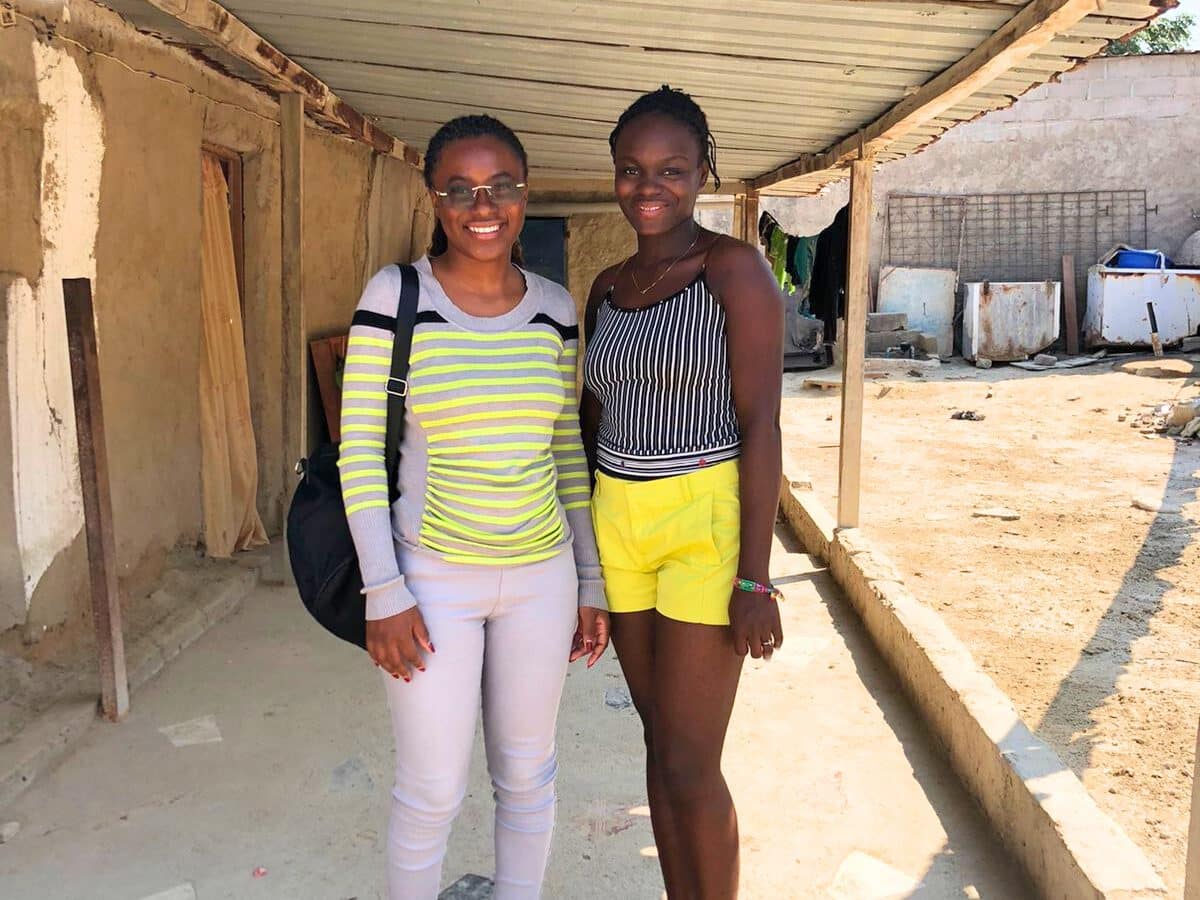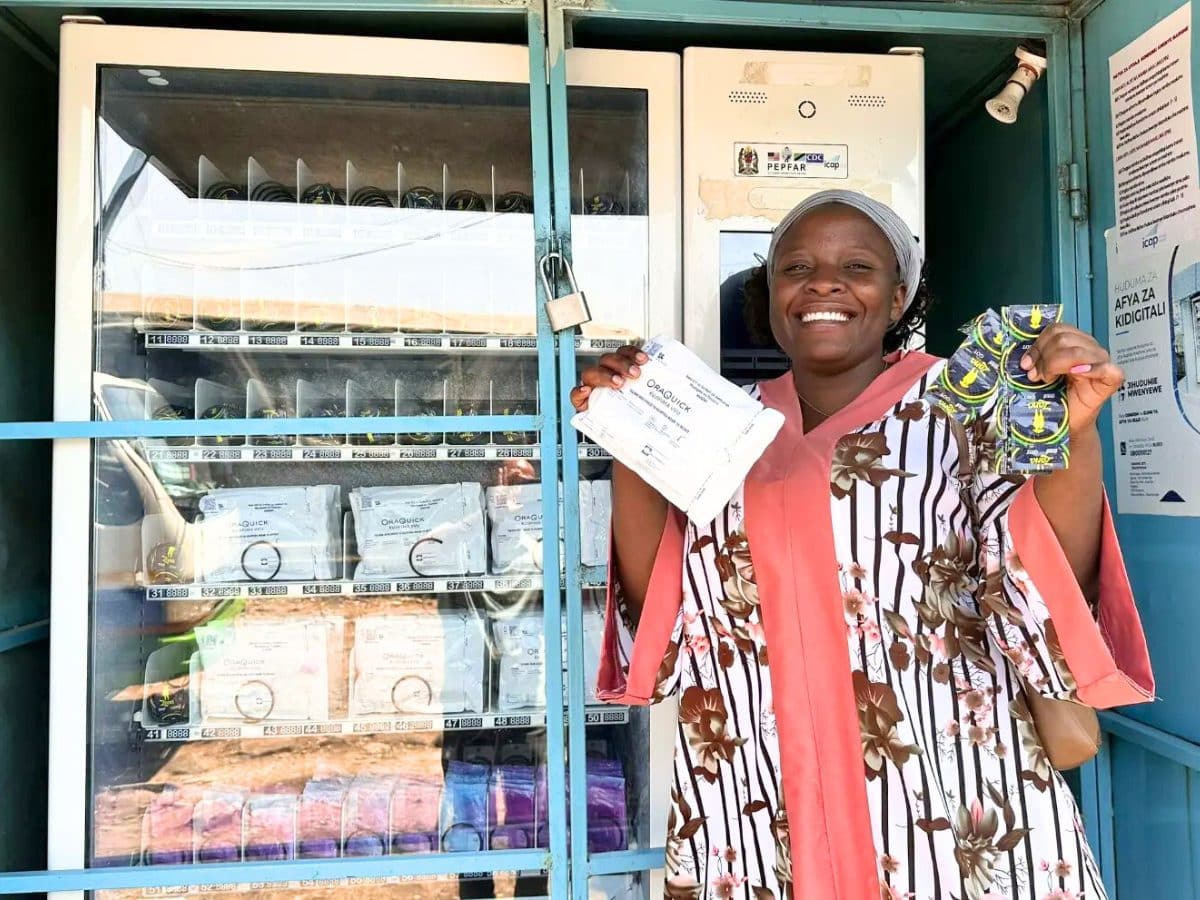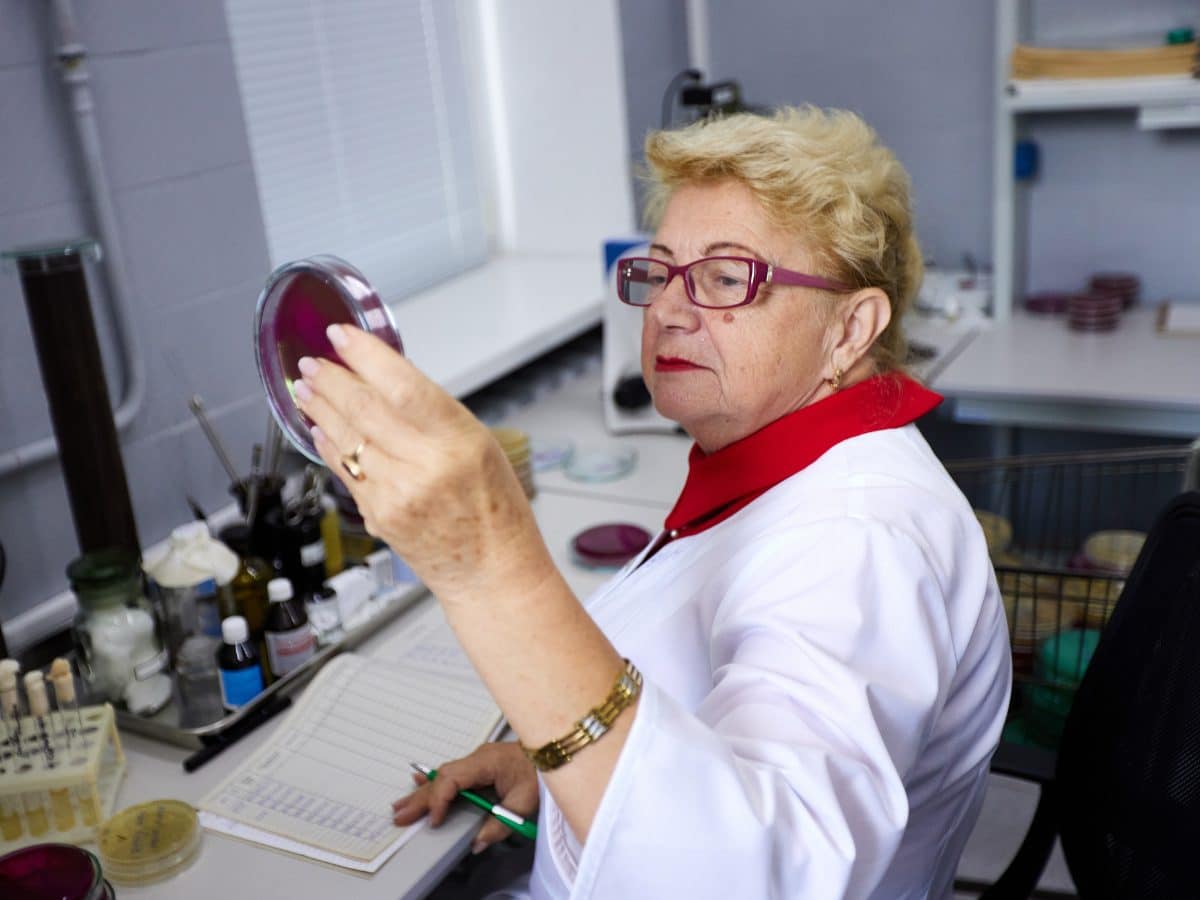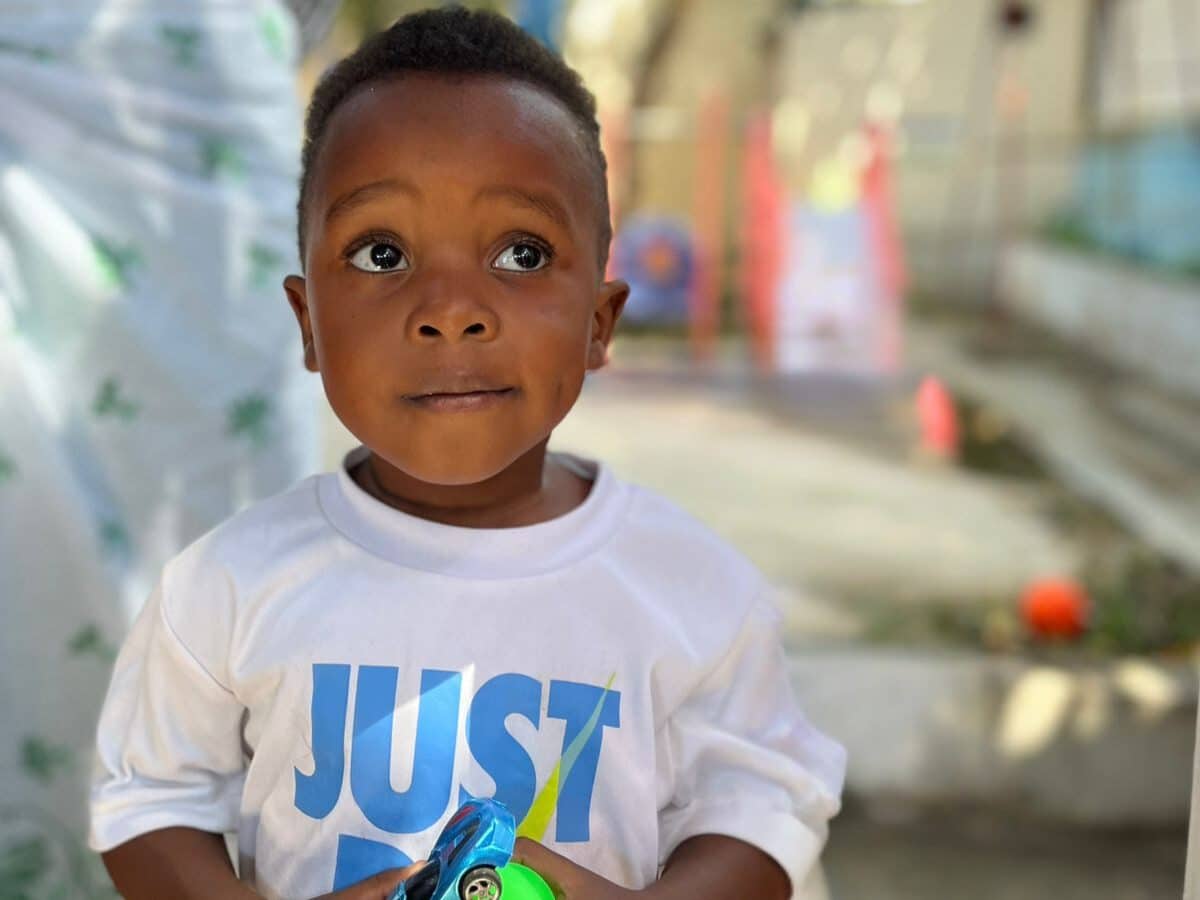When Suzana lost both of her parents, her motivation for taking HIV medication dwindled.
When Adriana’s boyfriend learned she was diagnosed with HIV, he stopped speaking to her, and she found it difficult to keep up with her treatment.
Sandra, Celmira, and Veronica all hid their positive HIV test results out of fear that friends, family, or neighbors would learn of their status.
These five young women, all of whom are living with HIV, have something much deeper in common than their health status. They found community and courage to face the challenges of their HIV diagnoses with the support of a peer named Inocência.
Inocência is a 21-year-old youth peer counselor in Benguela, a western province of Angola. Having acquired HIV through vertical transmission, Inocência had been taking antiretroviral medication all her life, but only learned of her status from her parents as a teenager. She became involved with the Community Association for the Support and Defense of Young People Living with HIV (ACADEJ) four years ago when a close friend disclosed his own HIV-positive diagnosis and invited her to the group.
ACADEJ collaborates with the Lift Up Initiative, which is implemented in Benguela province through the Reaching Impact, Saturation, and Epidemic Control (RISE) project, a program supported by the U.S. President’s Emergency Plan for AIDS Relief (PEPFAR) through the U.S. Agency for International Development (USAID).
Through RISE, Lift Up is working with ACADEJ to refine and scale-up its peer-led community approach to improve care and treatment outcomes among young people living with HIV through trained peer youth navigators like Inocência. A total of eight youth peer counselors, or “Kambas,” which means “buddy” in the local language Kimbundu, will eventually be hired to cover Benguela.
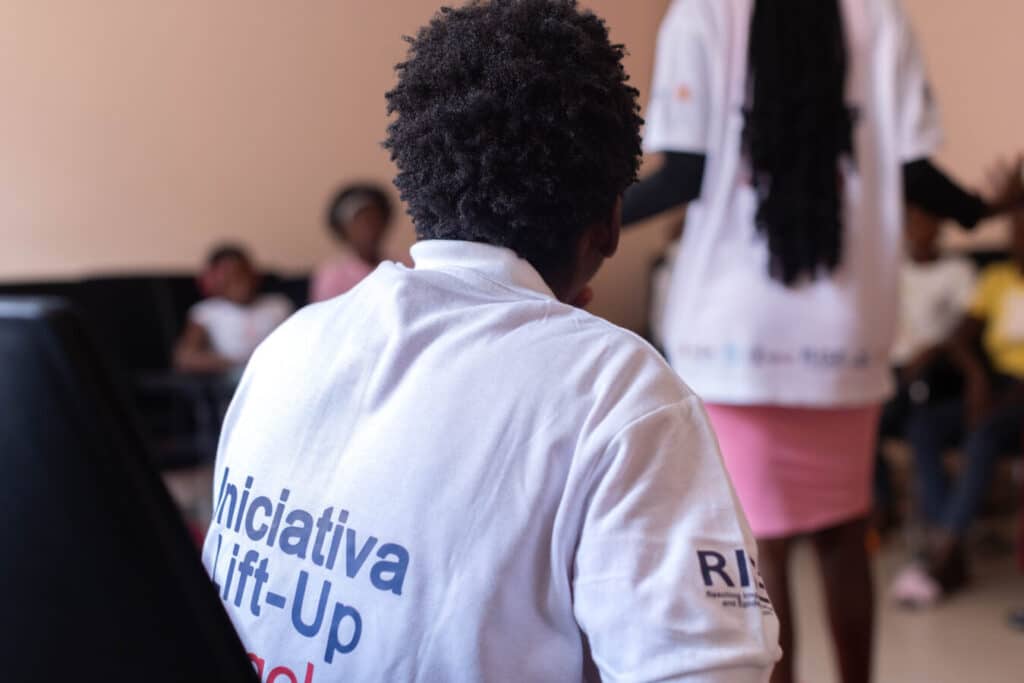
The role of the youth peer counselor is vital in the region, where one in ten adolescents and young people ages 10-24 interrupt treatment.
“Support networks among young people living with HIV are essential from the moment they are diagnosed and throughout the course of their lives,” said Pedro Kakoka, Lift-Up national officer for RISE Angola and Inocência’s mentor. “Social support can improve adherence to antiretroviral therapy and improve the quality of life of people living with HIV. Such support helps youth share experiences, encourage disclosure, reduce stigma, enhance coping skills, and improve confidence.”
“When we are supported by people around us who believe in us,” Kakoka added, “we believe in ourselves.”
Inocência counsels young people who are either newly diagnosed with HIV or need daily reminders and encouragement to stay on treatment or to be motivated to return to treatment.
Adriana, for example, is a peer Inocência supports.
Just 18 years old, Adriana knew very little about HIV prior to meeting Inocência. Adriana had visited the health facility CS Camunda to be tested for HIV with her boyfriend, where she learned she was positive and he was negative. She struggled with her self-worth when her boyfriend stopped speaking to her. Nevertheless, when Inocência began making home visits to teach Adriana about HIV and the importance of taking medication consistently, it made all the difference.
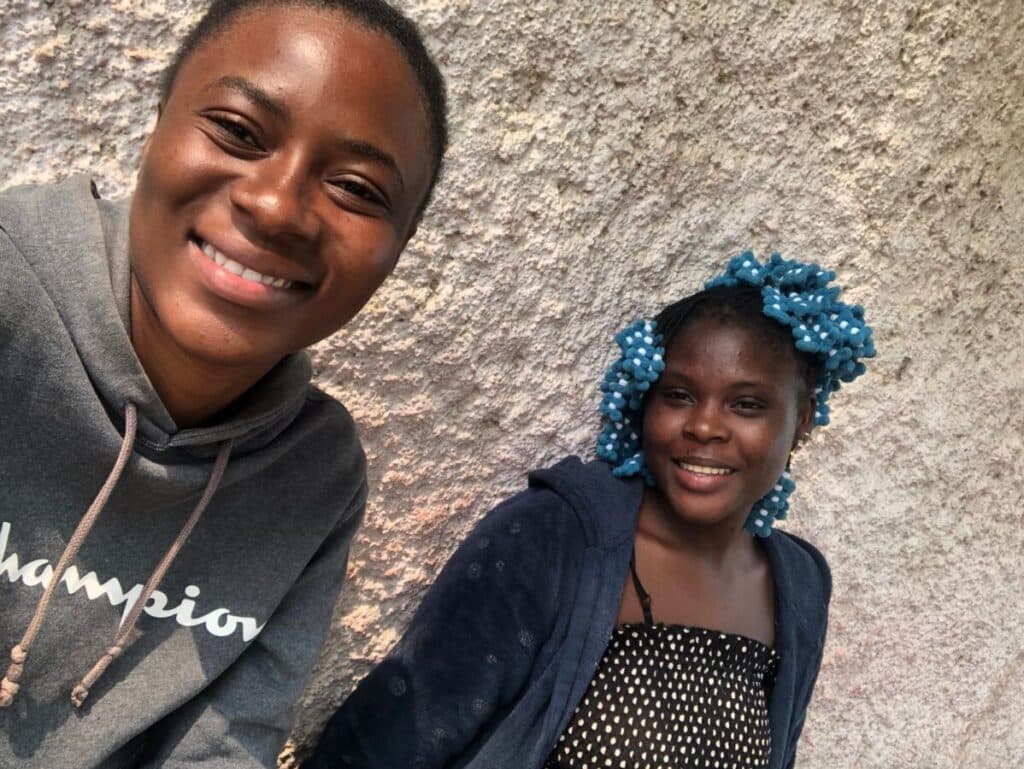
Inocência invited Adriana to participate in an antiretroviral treatment (ART) adherence group, where young people gather to share their personal health stories. With two groups organized each month — one for younger adolescents and one for older youth — each meeting focuses on different topics ranging from sexual and reproductive health to disclosing one’s HIV status. After regularly attending the ART adherence group and working with Inocência, Adriana now receives ART at CS Camunda health facility.
“What gives me the most joy about this job is when patients begin to take the initiative to reach out to me,” Inocência said. “That is a sign that my support to them is taking effect.”
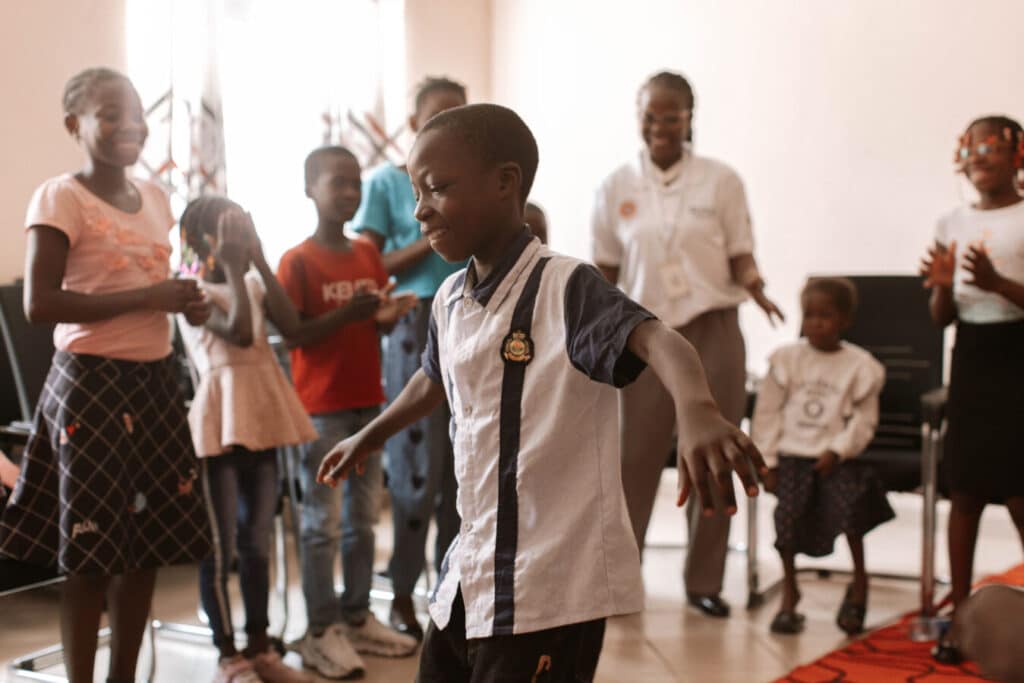
Sandra is another one of Inocência’s peers. Twenty-one years old, Sandra had tested positive for HIV at two other health facilities previously, but was unable to accept her results, and only re-tested again at CS Graça health facility when she learned she was pregnant. During home visits, Inocência counsels Sandra on how to consistently take her medication, which she previously found difficult out of fear her siblings would learn of her diagnosis. Inocência invited Sandra to visit an ART adherence group and the experience sealed her ability to maintain treatment.
“I felt welcomed and encouraged by the courageous stories I heard from others who are like me, who are overcoming this challenge and learning to live positively,” Sandra said.
Sandra isn’t the only peer Inocência counsels who has struggled to disclose their status or maintain treatment. Inocência provides home visits, medication reminders, and upcoming clinic reminders to other peers like Suzana, 23 years old, who struggled to maintain treatment after losing both of her parents. Inocência also works with Celmira, 22 years old, and Veronica, 21 years old, on finding the courage to disclose their HIV status to a trusted family member or friend. To guide them in this process, Inocência uses the USAID-developed “Positive Connections” guide as a tool, which trained her on providing support for youth through the disclosure process, an essential step for building support networks.
All three young women — Suzana, Celmira, and Veronica — are now consistently taking ART and have plans in place to disclose their HIV status.
Inocência is making a world of difference in the lives of young people living with HIV in Benguela. Now in her third year of university, her experience has even inspired her to enter the field of public health, where she will continue to make an impact using the skills she has learned as a peer counselor.
“What I would love to specialize in [at university] is community health,” said Inocência. “I would like to understand the levels of knowledge of HIV in the community and find strategies to help reduce stigma and discrimination.”
The Reaching Impact, Saturation, and Epidemic Control (RISE) project is supported by the U.S. President’s Emergency Plan for AIDS Relief (PEPFAR), through the U.S. Agency for International Development (USAID). In Angola, ICAP at Columbia University is involved in the fight against HIV/AIDS through the RISE project consortium led by Jhpiego.
About ICAP
A major global health organization that has been improving public health in countries around the world for two decades, ICAP works to transform the health of populations through innovation, science, and global collaboration. Based at Columbia Mailman School of Public Health, ICAP has projects in more than 40 countries, working side-by-side with ministries of health and local governmental, non-governmental, academic, and community partners to confront some of the world’s greatest health challenges. Through evidence-informed programs, meaningful research, tailored technical assistance, effective training and education programs, and rigorous surveillance to measure and evaluate the impact of public health interventions, ICAP aims to realize a global vision of healthy people, empowered communities, and thriving societies. Online at icap.columbia.edu


